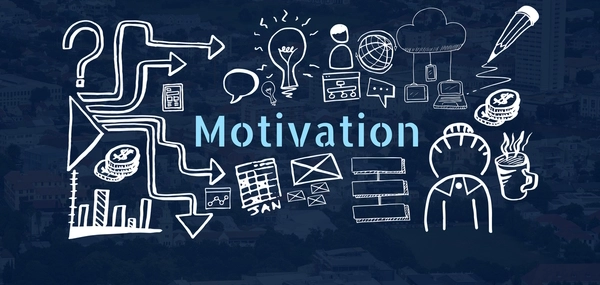How to motivate yourself as a PhD student? Tips for your PhD motivation

Finally, you have decided to do a PhD, which is excellent. But remember, pursuing a PhD is a challenging feat. It requires immense dedication and hard work, often with little recognition or reward in the short term. Motivation is vital to staying focused on your goals and pushing yourself beyond what you thought was possible for a PhD student to make it through such a demanding academic program.
In this article, we will discuss some strategies for finding internal motivation while working towards completing your PhD degree. We’ll explore techniques like setting clear objectives, utilising social support networks, breaking tasks into manageable chunks, and taking time out for self-care activities that can help keep you energised throughout the process. By using these methods effectively during your PhD journey, you can stay motivated and maximise your potential to succeed!
Keep yourself motivated: Identifying what drives you.
Motivation is a critical factor in pursuing your PhD. To stay motivated, it’s essential first to identify what drives you and ensure that this aligns with the goals of your research project. Ask yourself, “What motivates me?” or “What are my long-term career objectives?” This will help ensure that you remain focused on achieving those goals while working towards completing your degree. Additionally, take time each day to reflect on why you chose this path– personal fulfilment or professional development. These reflections can keep pushing you forward when times get tough, even during challenging moments.
Make a plan for your PhD and stick to It!
Completing a PhD is no small feat. It requires dedication, hard work and perseverance to keep yourself motivated throughout your PhD. Setting achievable goals ensures you stay motivated while pursuing your PhD. Create a plan with the big picture, and make a to-do list to help you reach milestones. Setting realistic expectations with the help of your supervisor can give you something tangible to strive towards throughout your studies, which keeps your motivation high! You can start by breaking down your long-term objectives into smaller tasks with short deadlines so that another appears immediately when one goal is achieved. This provides an ongoing sense of accomplishment and momentum that helps maintain focus during challenging periods where progress may seem slow or nonexistent. Additionally, talk to other PhD students and faculty members and use any resources such as mentorships or internships provided by universities or organisations. They provide invaluable experiences essential for the successful completion of the doctoral program but also serve to get your motivation!
Get Out of the Rut: Finding New Ways To Stay Inspired
Regular breaks from your studies and engaging in activities outside of academia, such as attending events or networking sessions related to your field, increase your motivation. Additionally, surrounding yourself with positive people with similar interests will help create an inspiring environment that encourages professional and personal growth. Furthermore, actively seeking out resources such as seminars on topics related to your area of study or articles written by experts in the field may give you insights into novel approaches. They could further boost your motivation for continuing work on challenging projects while also helping build valuable skill sets. Lastly, yet importantly - set realistic goals throughout each step of progress; reward yourself upon completion so that you feel accomplished rather than overwhelmed and demotivated!
Networking with other PhD students can keep you on track.
Networking with peers is essential for motivation during your PhD. Finding a community of like-minded people who are also completing their doctorate can provide invaluable support and advice throughout this journey. This could be through joining online forums, attending workshops or conferences related to your research area or social meetings outside your work, or even connecting directly with other researchers at universities worldwide. Such connections help you stay back on track and make it easier for you to access new resources, such as papers and grants, that may further advance the course of your PhD. Additionally, having conversations about what motivates each person can give everyone involved fresh perspectives on how they should approach their studies, which, in turn, keeps them focused and inspired when times get tough!
Take Time for Yourself – Unplugging from Stressful Situations
Taking regular breaks is essential for long-term success while pursuing your PhD. Breaks allow you to step back and gain perspective, refocus on what’s necessary, and mentally and physically reset. Scheduling these short respites can be a powerful way of preventing burnout as it gives the mind time to recharge from all the hard work that comes with completing research projects or writing papers. Additionally, taking regular breaks such as watching movies, going on walks or hikes, and participating in yoga classes or other forms of exercise help reduce stress levels. They also give you much-needed “me time” to enjoy and often provide additional motivation when returning to work!
Remember, every PhD student feels a lack of motivation during their studies. It’s normal. Reading books unrelated to your research topic may also provide relief by helping you temporarily switch off from any academic pressures and providing an escape into another world. This can also help with creativity when returning to tasks related to the PhD project later. Taking breaks during work hours should become regular practice; this will give you time away from screens if necessary, but more importantly, it allows moments throughout each day where relaxation takes precedence over achieving deadlines. Something which all researchers need at times!
Find Meaning in Your Work – Celebrate Small Victories Along The Way
It is easy to feel overwhelmed by the magnitude of a PhD project. Finding meaning in your work and celebrating small victories is essential for your PhD motivation. Look for patterns or connections between different elements of your research that may help you better understand its overall significance. This could involve talking with other researchers and postdocs in related fields or exploring how recent developments have impacted similar topics. It would be best if you also took time to celebrate each day, even briefly, to reflect on what has been achieved so far. No matter how small, this will provide an opportunity to both appreciate the progress made and recognise areas where further attention might be needed as you advance. Finally, staying connected with friends and family who are supportive and understanding about your journey towards completing a PhD is invaluable. These relationships can act like ‘anchors’ when you lose your motivation.
Reframe Failure as an Opportunity to Learn & Grow
Reframing failure in your PhD process should not be overlooked either; instead of viewing setbacks as an endpoint, they should be considered part of the academic career towards growth & development. In other words, mistakes are opportunities in disguise – allowing us to learn more about ourselves (our strengths/weaknesses) and our objectives (what we want out of life). They enable you to adjust course if necessary so that, eventually, desired results may manifest themselves into reality! Ultimately, this mentality allows you to keep pushing forward without giving up, even after encountering numerous obstacles.
Conclusion
The process of pursuing a PhD can be long and challenging. It is essential to stay motivated during this journey to reach the end goal of completing your degree. As stated above, there are many ways you can do this, from setting smaller goals, surrounding yourself with supportive peers or mentors who understand what it takes to complete a PhD program, taking time off when needed, rewarding yourself after achieving milestones along the way and remaining optimistic even through difficult times. All these combined strategies will help keep motivation high so that you don’t lose sight of why you started down this path in the first place because there is something special about achieving such an advanced academic milestone!


